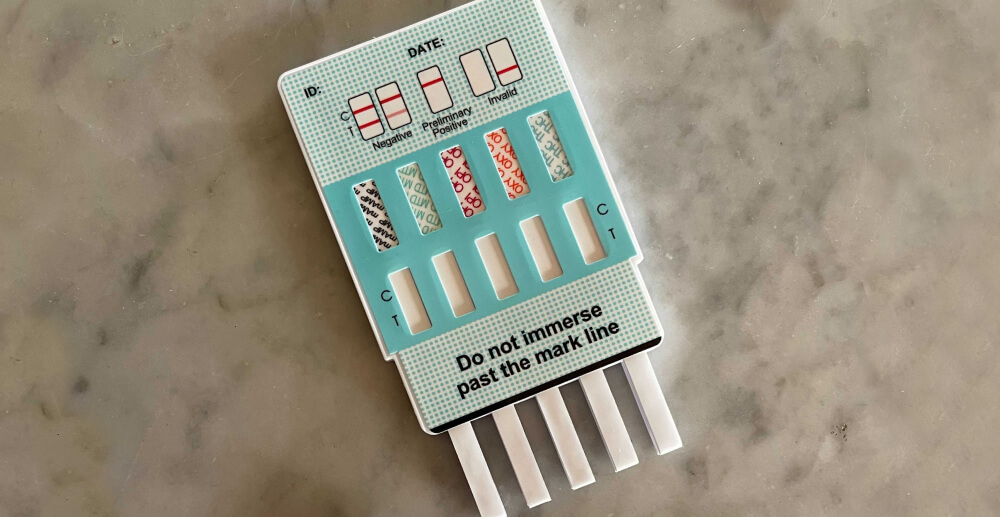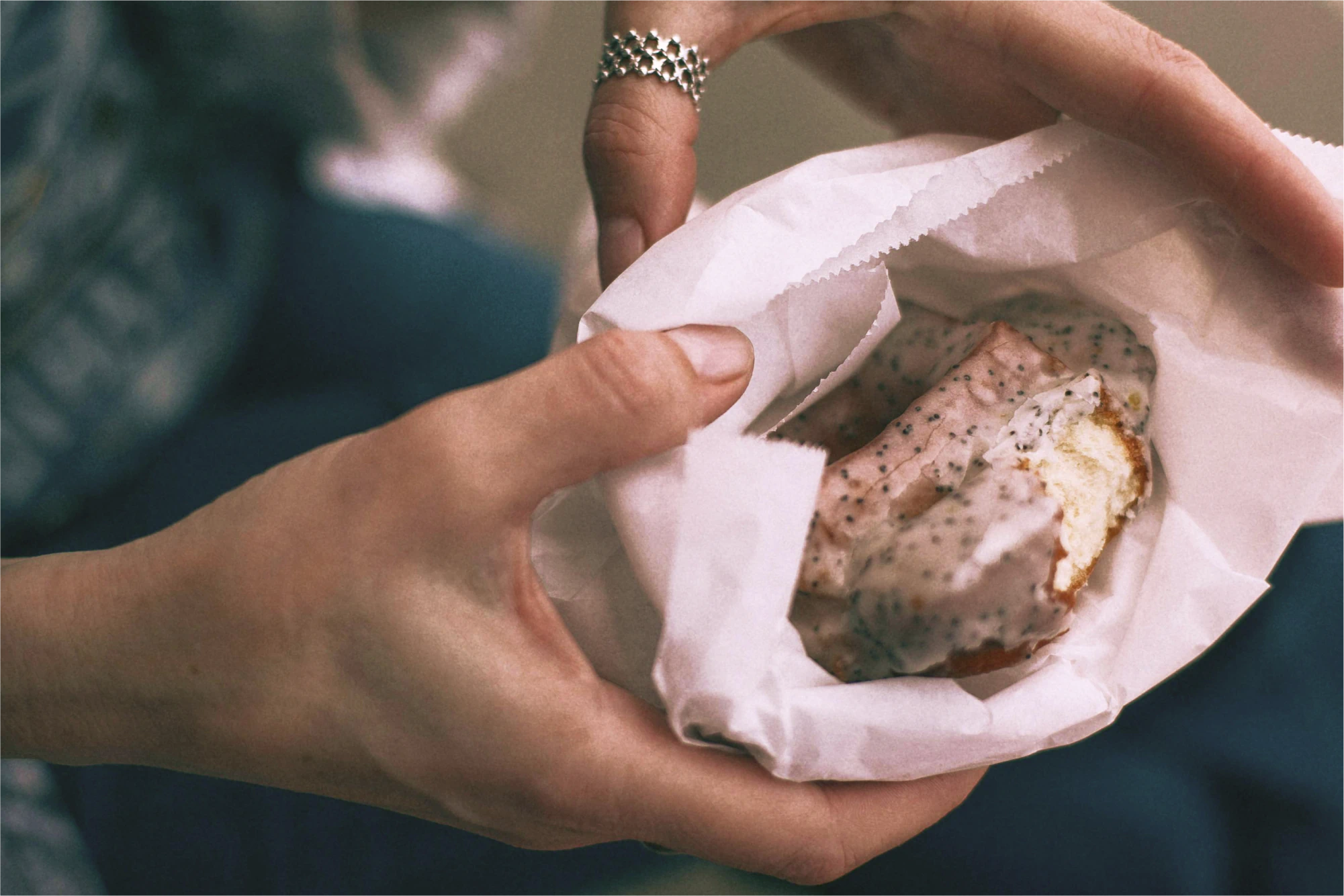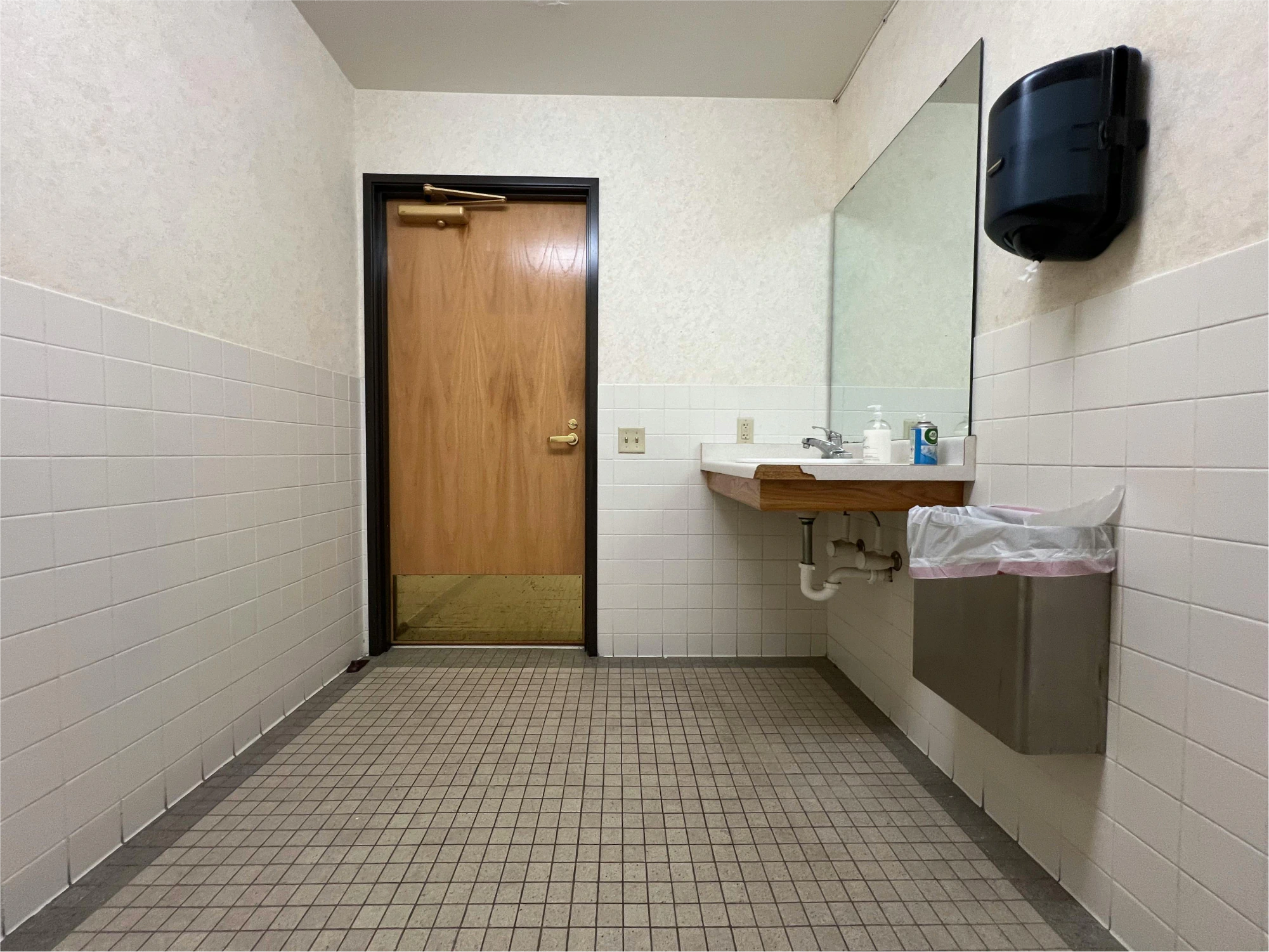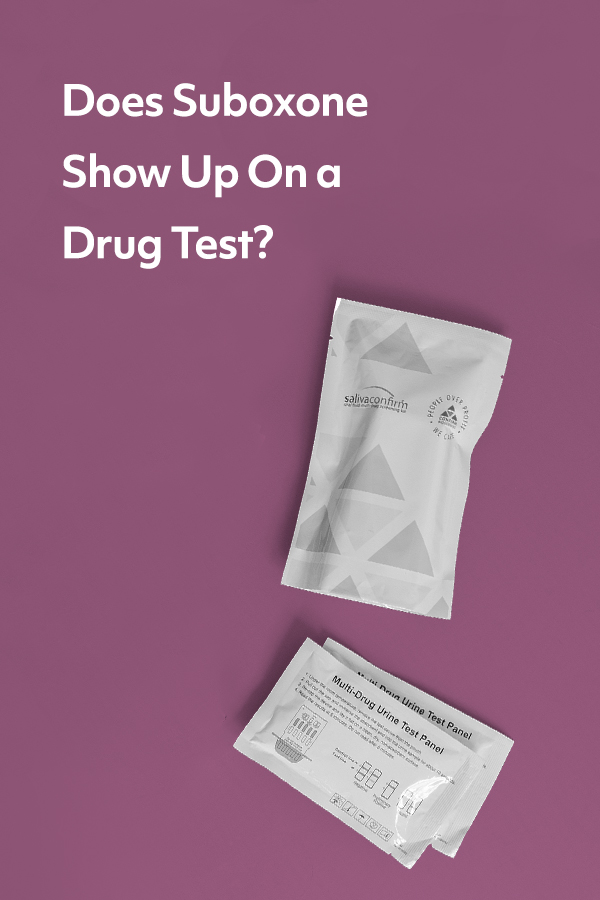An online, no-judgment recovery program
Does Suboxone show up on a drug test?
- Fact Checked and Peer Reviewed
- Will Suboxone show up on an opioid drug test?
- Why do I have to drug test during Suboxone treatment?
- What foods/drugs may interfere with my drug tests?
- How is fraudulent drug testing prevented?
- What drugs are tested for in a drug test given by employers?
- Do employers test for Suboxone?
- What does BUP stand for on a drug test?
- Will Suboxone show up on a 10-panel drug test?
- If I do test positive for Suboxone or another substance on a drug test, what can I do?
Will Suboxone show up on an opioid drug test?
No, buprenorphine, the opioid ingredient in Suboxone, will not show up in an opioid drug test (or drug screen, which is the preferred term).
Most opioid panels are checking for two specific metabolites: morphine, and 6-acetylmorphine, the latter of which is unique to heroin. Buprenorphine is a synthetic opioid, not an opiate like heroin. This means it does not metabolize as morphine, so will not show up on most opiate or opioid panels.
The catch? Some drug screens are designed specifically to detect buprenorphine. Usually, these have 12 or more panels, meaning they are checking for multiple substances. If you take one of these that is checking for the metabolites of buprenorphine, then of course you can test positive for buprenorphine.
Even then, if you are being prescribed Suboxone or another formulation of buprenorphine, you shouldn’t have to worry about a positive result. In most cases, it is illegal to discriminate against a patient for taking a prescribed medication so long as you were honest about your prescription from the start.

Get help for opioid use and withdrawal symptoms directly through your phone
Why do I have to drug test during Suboxone treatment?
At Workit Health, our program is based in harm reduction, so you won’t be kicked out of our program based on a positive drug screen for other substances. That being said, the reason we use drug screens as part of your Suboxone treatment is for your benefit, so your clinician can provide the treatment you need.
We need to make sure that you are using your medication correctly and not diverting it to other people (which impacts how effective your treatment can be and is also illegal). We also screen for other illicit drugs, such as cocaine, that you may also wish to change your relationship with and that can affect your health.
Our program is based in harm reduction—you won’t be kicked out of our program based on a positive drug test
What foods/drugs may interfere with my drug tests?
False positives are relatively common in instant urinalysis tests, but following up with a confirmatory test (the test that is conducted in a lab) can usually detected that it was false. Many common medications—such as cold medicines and antihistamines—and certain foods can cause false positives. Here is a good list of many of the foods and medications that can cause false positives.
One particular food to take note of while in a program for opioid addiction are poppy seeds. Even the amount of poppy seeds found on a bagel can be enough to trigger a positive if eaten on the same day as the test—and it will not show up as a false positive in a confirmatory test. That’s because, technically, it’s not a false positive. Poppy seeds actually do metabolize in the body as an opiate alkaloid. It’s not anywhere near enough to create a euphoric effect, but it can still be enough to trigger a drug test positive. The U.S. government recognized this issue and raised the detection threshold (meaning the levels of morphine that will trigger a positive) for military personnel and other government officials, but many non-government tests remain sensitive enough to detect the small amount of morphine in poppy seeds. Because poppy seed positives are harder to disprove than false positives from medications, it’s a good idea to skip that poppy seed muffin the day of your drug screen.
If you’re being drug tested for marijuana, it’s also worth being aware that, while it is extremely unlikely that non-psychoactive cannabis products like CBD will trigger a positive, it is technically possibile, especially if you consume the products very frequently. If you don’t live in a state where marijuana is legal, these products are supposed to be hemp-derived, which means they must contain .3% or less of THC (the main active ingredient in marijuana). But depending on the manufacturing process, they may contain more. Some manufacturers intentionally add more THC to their CBD products, especially if you’re purchasing them from a legal recreational store.
If you end up testing positive for a substance you have not taken, ask for your sample to be confirmed in a lab. It may also be a good idea to let your provider know in advance if you are taking a medication you know can trigger a false positive.
Whole-person care means we treat co-occurring conditions like anxiety, insomnia, and more
Whole-person care means we treat co-occurring conditions like anxiety, insomnia, and more

How is fraudulent drug testing prevented?
Urine drug screens typically check for drug metabolites— which can only be produced when the body processes the substance—not for the drug itself. For instance, some buprenorphine tests also test for the metabolite norbuprenorphine. This means that dissolving a Suboxone film in a urine sample won’t fool the test because buprenorphine will be present, but the correct metabolite will not.
If you take a drug screen in person, health professionals who conduct drug tests are trained to look for evidence of tampering of urine samples such as unusual colors, smells, cloudiness, or a soapy appearance. They may also use heat-sensitive strips (urine should be 90-100 degrees Fahrenheit within 4 minutes of production) to detect whether or not a sample is fresh. Urine drug screens conducted in a laboratory will also often test for normal human metabolites found in urine, such as creatinine, as a means of measuring whether the test has been diluted with water. An issue that can arise from this is that not everyone has the same levels of creatinine in their system; vegetarians and vegans may have lower levels than the general population, and sometimes regular hydration can cause a test to appear to have been artificially diluted when it was not. It’s a good idea to avoid drinking excessive fluid before a urine drug screen, if possible. Blood, sweat, and hair can also be used to test for drugs and are much harder to tamper with than urine.
If you feel the need to trick a provider regarding your drug test results, it may be a sign that they’re not be the best provider for you or the treatment plan may not be right for you. If you’re using a substance you want to quit (or in a way you don’t want to continue), you should feel safe having that conversation with your provider, whether or not it shows up on your drug screen.

We've helped 35k+ people since 2015
What drugs are tested for in a drug test given by employers?
Employers are able to order any kind of drug screens they like, but most of the time they check for the following substances: tetrahydrocannabinol (THC, the psychoactive ingredient in marijuana), cocaine, opioids, methamphetamine, amphetamines (e.g. speed, Adderall, and Ritalin), barbiturates (e.g. phenobarbital), and benzodiazepines (e.g. Xanax, Valium, Ativan). They also may test for other drugs such as alcohol, quaalude, PCP and MDMA.
Do employers test for Suboxone?
Federal employers do not test for buprenorphine, but private employers are free to test for any substance they wish. While most will not test for it—it’s an extra cost with little purpose—they are legally allowed to. If your employer gets a positive drug test result, the laboratory should ask whether there were any medications taken that may have caused the positive outcome. This will allow you to clarify that you are taking a prescription medication as directed.
What does BUP stand for on a drug test?
BUP stands for buprenorphine, which is used for treating opioid use disorder.
If you are taking buprenorphine without a prescription, consider speaking with a harm reduction-oriented provider like WorkIt Health to get legal access to this medication and reduce the harms associated with black market buys. It’s much safer to get your prescription from a clinician who knows your medical history and is attentive to your wellness, and to get your medication from a pharmacy that has strict safety protocols.
Will Suboxone show up on a 10-panel drug test?
No. Although it is a partial agonist opioid, Suboxone does not show up on panels as other opioids (due to the way it metabolizes, as discussed at the top of this page). A 10-panel drug test accounts for expanded opiates including codeine, heroin, morphine, hydrocodone, and oxycodone, but does not check for buprenorphine.
We get it because we've been there—We're founded and operated by people in recovery
If I do test positive for Suboxone or another substance on a drug test, what can I do?
Whether you’re being screened for employment or for a drug treatment program, be honest about your use when confronted with a result.
If you are prescribed a medication, offer to bring in a doctor’s note explaining your treatment.
If you are being tested for a job, consider informing your employer upfront about your medication prior to taking the drug test.
Although it is a violation of federal law to fire you because you are taking prescribed buprenorphine, an employer can technically fire you for “dishonesty” if you didn’t disclose your medication before you tested positive.
If you’d prefer not to disclose your medication because you are worried about stigma, ask what substances are being tested for in advance. Buprenorphine will not show up on a drug screen unless specifically tested for.
Our treatments are evidence-based and backed by science

An online Suboxone clinic that works
Don’t struggle alone with the cycle of opioid use and withdrawal symptoms. The help you need is available right through your smartphone.
What sets us apart
- We're founded and operated by people in recovery
- Our judgment-free clinicians won't remove you from the program for going off course
- We've helped 35k+ people since 2015
- We treat you as a whole person, including co-occurring conditions like anxiety, depression, insomnia, and more
- Our members are part of a close-knit, online community with weekly support groups and private online forums
- Our treatments are evidence-based and backed by science



I’ve been taking Suboxon for 4 years an last week it didn’t show up on my drug test and I don’t understand why I take it faithfully every morning for 4 years.how is this possible??
Hi Brenda: Thanks for reaching out about this, we aren’t sure why this would happen. We would recommend (reminder, we aren’t clinicians!) discussing this with your clinician and maybe asking for another test.
How do you know suboxone will be tested for in a screening? Are there certain wording used for that. Or will it say 10 panel plus?
If someone is prescribed Suboxone if they’re given a drug test by a court will it show up as an opioid? If they test for heroin will a suboxone strip be able to make a positive reading for heroin?
I’ve recently went to the doctor to get prescribed suboxone instead of buying it off the street like I was doing. The first time I went I was honest with my doctor and told him I sometimes take Adderalls or adipex which is not prescribed to me but in all honesty it gives me energy, I have 2 kids and I take care of my mother in law who has dementia so getting that energy boost from the Adderalls or adipex helps a lot ! I have my second appointment with my suboxone doctor on July 19th and I just recently realized that my doctor had given me a labcorp paper to go do a specimen test which honestly is going to be hard to do, not only am I dirty for Adderalls and adipex but I have my kids and labcorp doesn’t allow them to go in the back with me and I don’t have anyone else to watch them because my friends and family work ! In saying all this my question is do you think my suboxone doctor will cut me off of my suboxone because this will be my second time failing a drug test ? Should I be upfront and tell my doctor that the Adderalls and adipex give me energy that I need to take care of the things I need to get done ? If I had the time to go try to get prescribed Adderalls and/or adipex I would but I have my kids 24/7 someone please help and tell me what I should do !
Hi Jamie: Thank you for reading. As far as your drug testing that would be something you would need to discuss with your clinician since we do not know the rules and regulations of the program you are in. We wish you the best of luck in your recovery! 🙂
What would make you test positive for suboxone when you don’t take it but you just are prescribed narcos
Hi Kathy, I would ask your medical provider this question. 🙂 Thanks for reading!
Thanks!
Thank you for reading!